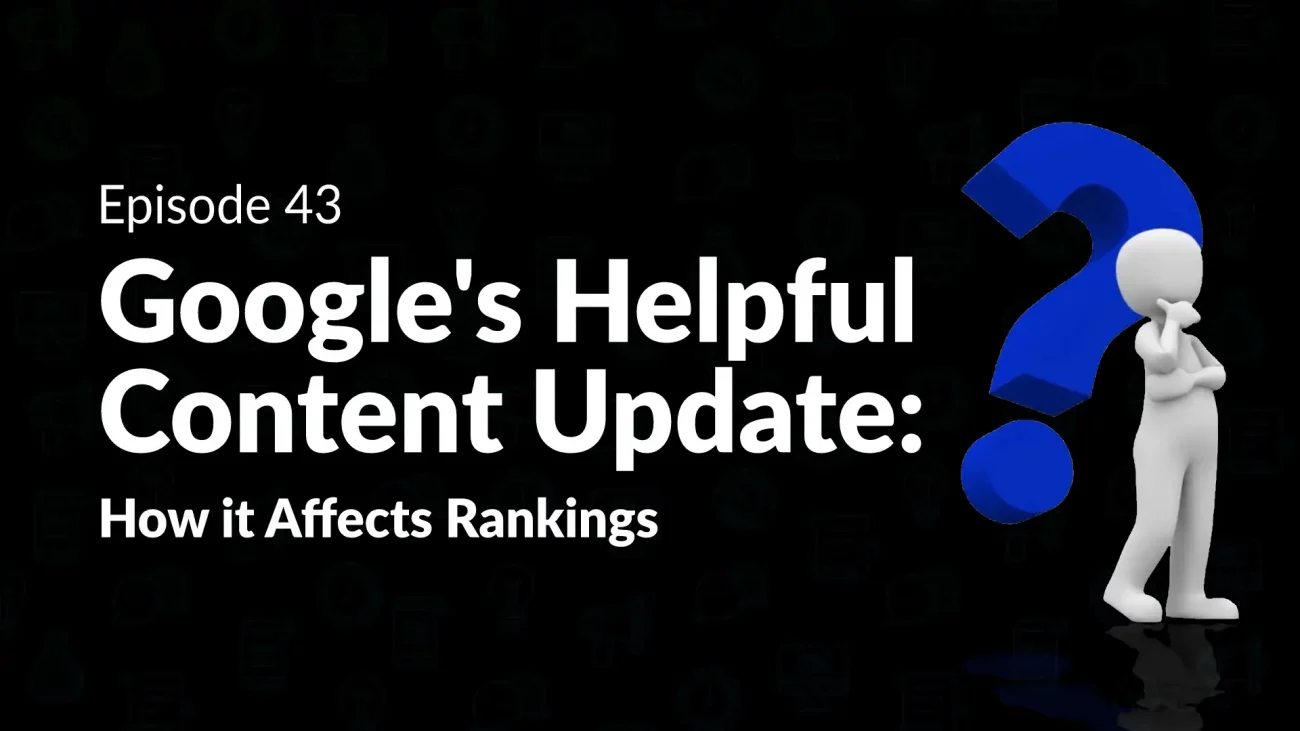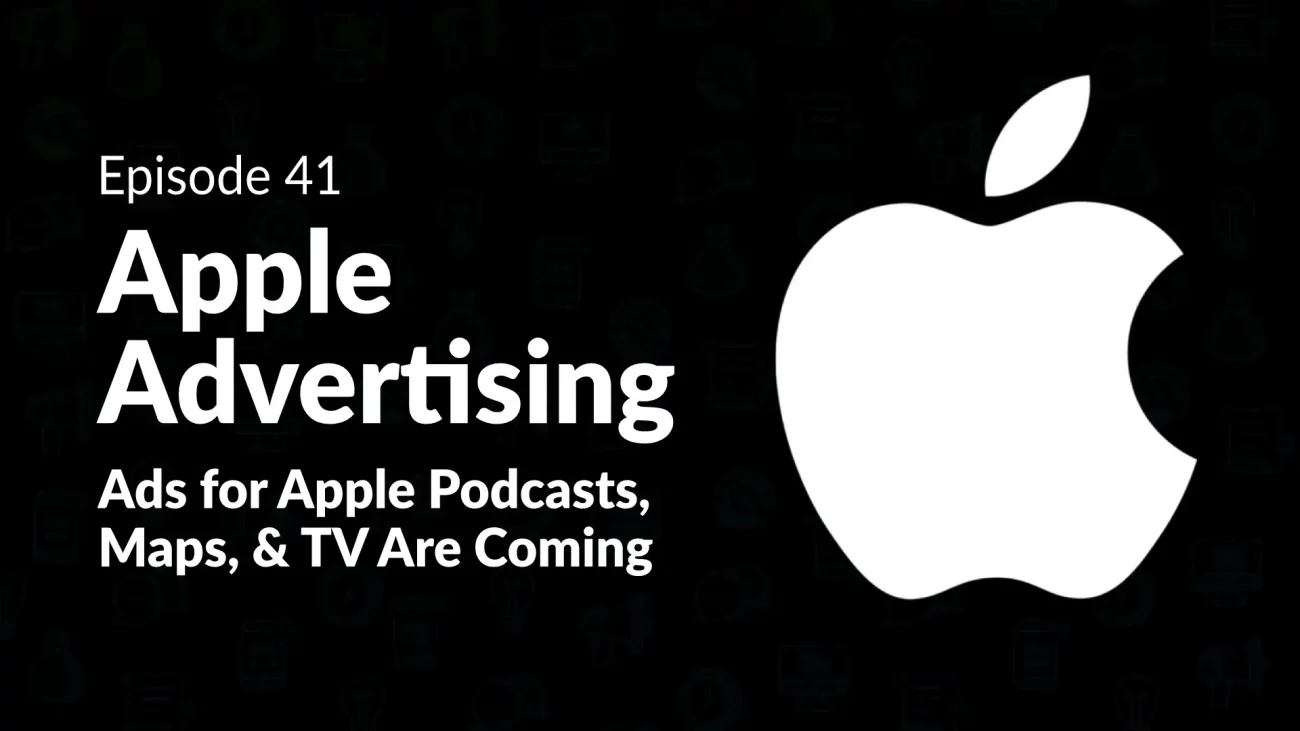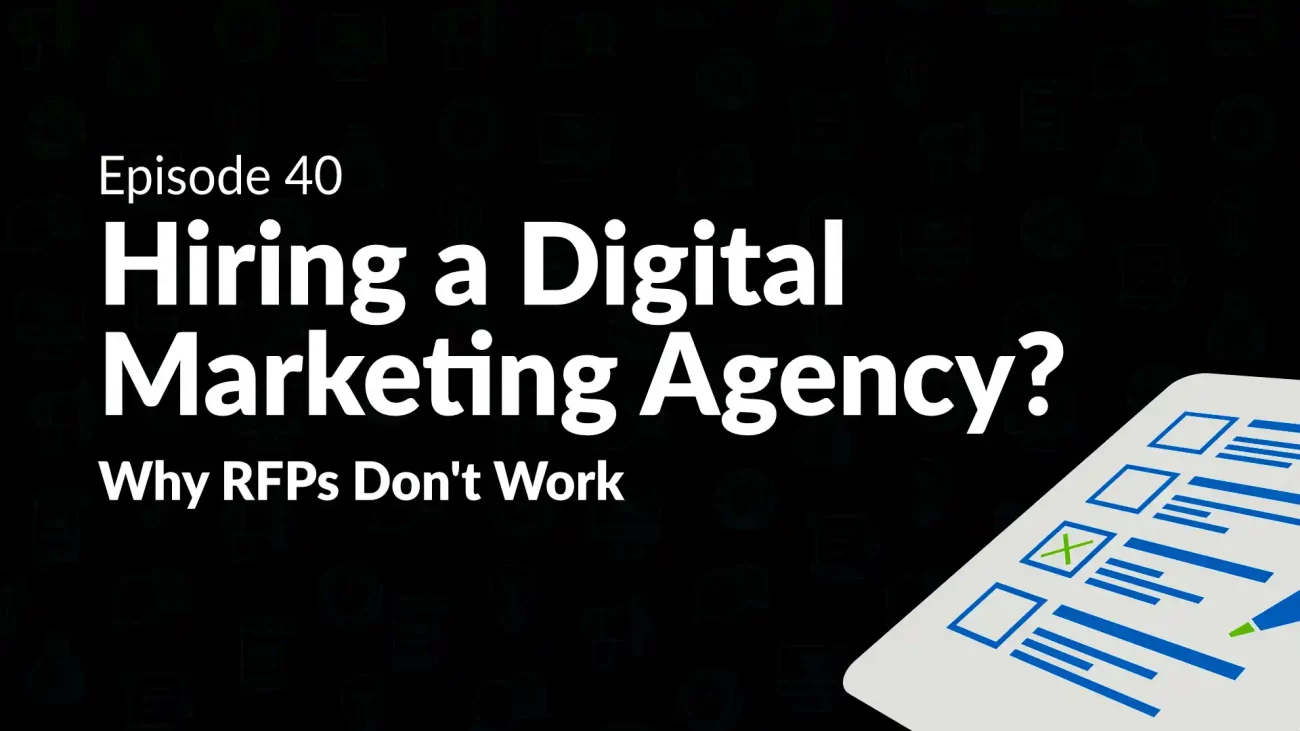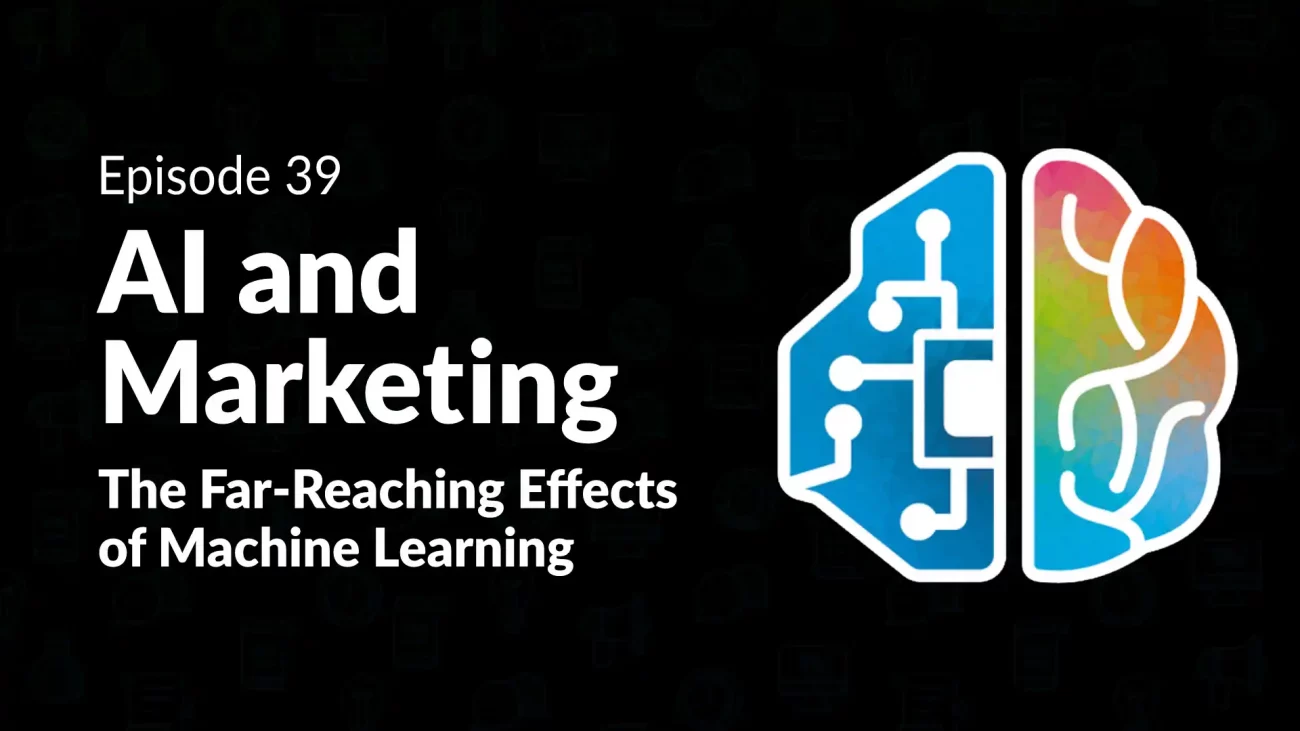Episode 23: Facebook’s Changing Ad Policies: Are Other Platforms Better for Conversions?
Facebook (Meta) has begun to restrict targeting certain categories (such as health causes and politics) within their advertising platforms. This affects not only Facebook but also Instagram and WhatsApp, which they also own. Now in a position no corporation wants to be in, Meta is in the process of performing damage control on their reputation and public image. Reacting to pressure from groups like Apple and the governments of various countries, they are playing catch up regarding their user data privacy policies. While this is great for users, marketers will face unique challenges as a direct result of this new direction. How the change impacts agencies and businesses will vary based on their industry, goals, and strategy. It also means that for the first time, many will look towards smaller platforms like Reddit and Pinterest that rely on their own first-party data.
In this week’s Digital Marketing Mondays, Devin and Hans discuss the challenges and opportunities that Facebook’s changing ad policies are creating.
Transcription:
Devin:
You’re listening to Digital Marketing Mondays. Each week, we bring you new and exciting content from around the marketing industry and help give you, the marketer, insights into what’s happening. We’ll offer our advice and share some takeaways to help you to develop better strategies for your marketing. Ideally, this will also help you improve your ROI as well. With that, let’s tune into this week’s episode.
Hans:
Okay Devin, I’ve been noticing that Facebook is continuing to be under pressure. We know that Zuck’s been questioned by Congress multiple times about privacy issues. I read somewhere that Facebook had estimated that their revenue had gone… well, they had lost the potential of gaining $10 billion in revenue in the past year. Which is a large number, 10 with a B, billion, because of the moves Apple had made to restrict privacy and not pass as much information onto a place like Facebook. What else is going on in the Facebook world? What do you see? We run ads for clients on Facebook, what are we seeing out there right now that people should be aware of?
Devin:
That’s a good question. I think what seems like is happening is Facebook, now known by the name Meta, is really grasping for straws here. They are under a lot of pressure from groups like Apple that are forcing their hands to get less data. And even other countries around the world that are starting to put in a lot more privacy restrictions. The US is starting to catch up onto it. They are in somewhat of a reactive mode right now, as well as proactively trying to reduce some of the potential categories that advertisers can target by to make themselves look a little bit better in the respect to privacy.
Devin:
Some of the recent changes that have been happening have been that they are restricting some further categories from which people could target by. As an example, health causes like breast cancer awareness, as an example, can no longer be targeted as a group as of March 17th, 2022. That’s something to be keeping in mind. As well as political ads. I think we certainly saw under several rounds of recent years with political folks, there was a little contentious all the way around.
Hans:
[crosstalk 00:02:24].
Devin:
So Facebook is putting a squash on that one, especially with the 2022 midterm elections coming up here in a little bit. Definitely think it’s probably a relevant timing there to just get rid of that category. Those are examples of some of the changes that they’re proactively working on.
Devin:
But it definitely leads us to think about, is Facebook ultimately the right platform to be advertising on? That’s a loaded question, for sure. I think there could be still a lot of benefit to continuing to run ads on the platform under the right strategy and under the right messaging. But at the end of the day, there’s a lot of changes that are happening at this point that are making it harder for advertisers to run effective ads.
Hans:
When you say effective ads, Devin, I mean, we’ve run Facebook ads for years. A lot of it has been done to generate sales, generate leads, that sort of thing, as opposed to just general awareness building. How do you see the platform transitioning here in terms of lead gen and actual sales as a sales engine? What’s happening in that regard?
Devin:
Yeah, I think it largely does depend on the type of business you are. If you’re in the business of selling t-shirts online, you may not see a dramatic change in terms of overall performance. And I think that’s largely a result of what is likely your business model of trying to target anybody that may have an interest in buying some high quality t-shirt. Companies like that might not see a huge change.
Hans:
Unless your t-shirts are geared towards some cause, right? Toward breast cancer awareness or gay pride or whatever it is like that. Right?
Devin:
Yeah, exactly. Exactly. Exactly. Yeah. But when you get into the B2B world, especially if you’re a lead generating-focused organization, I think what you are going to see over time is that costs will come down because you’re probably going to see a lot of other advertisers pulling out of Facebook overall. And when I say Facebook, I’m saying Facebook and Instagram; Meta does own those two apps. And now what is also WhatsApp. So there’s several properties you can advertise on under the Meta business manager account and ads manager account. But I think as B2Bs, you’re going to see lowered costs overall and probably lower conversion rates when it comes to your leads. I think you’ll still be able to drive reasonable traffic, but I think traffic to your website, you will be driving lower conversion rates there as well. It does partially depend again on the strategy you’re using as well as the core goal that you have in mind for a lot of these campaigns.
Hans:
Right. Okay. Tilting more toward awareness, be sure to check out, not just Facebook itself, but also Instagram and WhatsApp. What about other platforms that are out there that are in the… TikTok and Reddit and stuff like that, would those potentially be options for advertisers to look at right now?
Devin:
I think it can be. I think it’s more worth exploring, setting aside some budget and running some small tests with some specific messaging. Try not to make it too crazy, or certainly don’t use messaging you’ve never tried before. But what’s great about some of these other social platforms that are gearing up these days is that they’re not relying on others for data. For those types of platforms, it doesn’t necessarily matter if they have been to your website or not. It’s good opportunity because we can target them by interests in groups like Reddit. Right?
Hans:
Yeah, exactly.
Devin:
You can target followers of specific subreddits. And that’s a really good opportunity to get in front of somebody that would be assumably very highly targeted in that way, because they’ve shown that direct interest.
Hans:
They’ve self-selected, it doesn’t get much better than that. Yeah.
Devin:
Yeah. And even the Pinterest and TikTok, similar, you can target specific creators or specific channels, whatever it happens to be, you have those opportunities to target that. And so I think there’s a lot of room for folks to be able to play with that model.
Devin:
The only exception I’ll add though, for specifically Facebook, Instagram, WhatsApp targeting is if you have a well-built CRM and marketing automation tool and the ability to create and send lists to the platform, that would be the only thing that would really want to effectively allow you to stay in that platform and continue running at a reasonable level there. Because with that customer matching, you are saying, these are people that are either qualified or disqualified to be seeing ads. And there’s a very good match rate with a lot of those now. I think there’s great opportunity for folks. Especially in the B2B world, if you have not been using any form of customer matching or list matching, definitely start baking that into your strategy now. Because ultimately, I think as a whole, we’re going to end up losing some form of retargeting as a result of the bigger picture down the road with Google and the security issues that way. That’s definitely a low-hanging fruit that everybody, every advertiser, regardless of your industry, should be actively working towards now.
Hans:
Well, I mean, it sounds like retargeting to me, right? If they’re on your list already, unless it’s an acquired list from somewhere, that’s a form of retargeting and that’s a good thing.
Devin:
Yeah. But you could also use that to create lookalikes as well.
Hans:
Ah Right. Right. Okay.
Devin:
Which, Facebook, Instagram, they have enough information about folks that is considered first party to them, so they could absolutely create reasonable lookalikes and still see good quality as well. That’s the other key element of, if you’re doing any form of list matching, make sure you have the lookalike option also enabled.
Hans:
Okay, great. All right. It sounds like if you’ve been using Facebook advertising, you might have to change your strategy a bit, you might have to lower some expectations as far as the final outcome of a click might be, but there’s still some opportunities there. And then there’s a bunch of other options to try as well. Does that sound like a fair summary?
Devin:
Yep. Yep. Sure does.
Hans:
Okay. Okay. All right. Well thanks, Devin. Always good talking with you.
Devin:
Likewise. Thanks Hans. Thank you so much for tuning in. We really appreciate you taking the time out of your busy day to engage with our content. Whether you’re watching on YouTube or subscribed on our podcast apps, we appreciate you taking the time. Make sure to leave a comment down below and let us know any feedback that you have for us. We’re always watching the comments and engaging in any way that we can. If you find this content useful, also make sure to subscribe or give it a big thumbs up. We appreciate it. Thanks so much.









